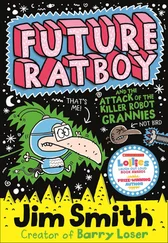Second, I wanted someone who had no external advantages. I wanted someone with little or no corporate experience. Someone who had only worked entry‐level jobs so that every reader could relate. My mentee had to come from working‐class roots. No entrepreneurs in the family to use as role models or to lean on for a loan. I also wanted someone with a limited social network. I wanted to find the proverbial fish out of water. Someone new to Los Angeles with no safety net.
Lastly, I was not going to open any doors nor share any of the business connections in my vast global network. I wouldn't ask friends to throw business his way or help him find employees. For this experiment to be truly fair, my mentee would have to build his own universe of contacts and associates. By setting these conditions, I knew that the mentee would feel the sense of pride and accomplishment that comes with achieving something on your own. I needed him to internalize that feeling and use it to catapult him over each new obstacle in his path.
As I noted earlier, the one attribute I was looking for in a subject was perseverance. One cannot teach perseverance. I needed to find someone who was resilient and had overcome many obstacles in their life. Someone who came from a tough background, and though not financially successful yet, worked hard to better their circumstances. I didn't want to invest all of this time (and my reputation) on a quitter. So even if I wasn't sure if the goal of earning a million dollars could be achieved in only a year, I had to find someone who believed it could be accomplished.
Though my methods for quickly generating wealth can be applied by young and old alike, I really wanted to find a millennial. There is a prevailing cultural stereotype that millennials are spoiled and afraid of hard work. Many of my peers have written off millennials as a pampered generation who were given trophies for just showing up and expect accolades for everything they say or do. Having raised two hard‐working millennial sons, I didn't believe the entitled narrative. I wanted to find someone who would obliterate those preconceptions. If this book was going to help the largest generation our planet had ever seen succeed, then I wanted one of their own to lead the charge.
In my mind, the rules for engagement were set. I was prepared to bet my entire professional reputation on one person. All that I needed to do now was find my mentee.
When the student is ready, the teacher will appear.
When the student is truly ready, the teacher will disappear.
Lao Tsu
One Saturday morning, when I was sitting in the audience at a growth‐hacking event in Los Angeles, I watched as the young speaker paced nervously across the stage. Moving like a caged panther that had ingested a case of Red Bull, the nervous young man quickly strode back and forth across the proscenium as he spoke at an ever‐dizzying speed. Much like pivoting your head at a Wimbledon tennis match, he was exhausting to watch and difficult to follow. His constant movement distracted the audience from the substantive information in his hundred‐plus slide PowerPoint. He had so much he wanted to say and couldn't get all of the thoughts out of his head fast enough. To make concentrating even more challenging, the lanky young man was wearing a gold lamé jumpsuit with matching gold high‐top sneakers adorned with the Roman god Mercury's wings. Under the spotlight, his glittery ensemble shimmered like a disco ball bouncing from wall to wall. And yet, underneath his gilded veneer, there was something genuine about him. He was bursting with energy, passion, and ideas. He had taught himself how to do online marketing on the cheap, but didn't know how to build that into a business. I had found my Future Proofing You millionaire to be.
Vin Clancy grew up in a poor, working‐class family in London. He and his older sister lived in council housing (or as we call it in the States: government projects) in the gritty Shepherd's Bush neighborhood. A few years before his birth, Shepherd's Bush became internationally infamous when three Metropolitan police officers were gunned down in a routine traffic stop. Vin's father was a caretaker and his mom worked when work was available. Throughout his childhood in council housing, Vin was surrounded by poverty, violence, and substance abuse. At 12 years old, he used to stop by the Blue Hawaii restaurant on Richmond Road on his way home from school because they gave out free glasses of pineapple juice. One day, one of the waiters who was supposed to hand out the juice didn't show up, and young Vin was offered a job. Earning four pounds for a few hours work, Vin kept the job all through high school. In his early twenties, Vin worked a series of odd jobs, including at the popular British grocery chain Tesco. Directionless, Vin even tried a sales job, but soon grew bored and quit. Until recently, he had been living in the UK on welfare, collecting about $100 a week. Statistically, a young man with his background was more likely to end up dead or in prison than a self‐made millionaire.
A million dollars isn't cool. You know what's cool? A billion dollars.
Sean Parker in The Social Network
In spite of all these obstacles, or because of them, Vin had something powerful going for him: perseverance. Unfortunately, Vin was a go‐getter with no idea which direction to go. All that changed one night in the Odeon Kingston cinema when he became mesmerized by David Fincher's movie The Social Network . Based on Ben Mezrich's book, The Accidental Billionaires: The Founding of Facebook , the film glorified Mark Zuckerberg's journey from obscure hacker to the world's youngest self‐made billionaire. The Academy Award–nominated movie was an epiphany for Vin. He saw in Jesse Eisenberg's performance a character with whom he could relate. He saw his future and a place to channel his energy. He too was going to become a rich and famous hacker. But first, he would need to get a computer and learn how to use it. The local library had computers Vin could use for free, so Vin started there.
Though not a programmer, he taught himself how to use a computer and put all his focus into learning how social media works and, as he would call it, how to “hack the system.” Vin networked with others online, learned which tools could help grow a person's social media following and how to interact with followers. Like so many of his generation, Vin's dream was to be famous online and move to Hollywood. He wanted to be a social media influencer, like Kylie Kardashian or British Minecraft reviewer Daniel Middleton, who are paid millions each year just for posting branded social media content. He was determined to become a self‐made social media marketing expert and had created a personal following of over 100,000 twenty‐somethings without spending a penny. Vin scrimped and saved, sold everything he had in the world, and with stars in his eyes, bought a one‐way ticket to Los Angeles. He came to America ready to build his personal Vin Clancy brand. When fame and fortune quickly proved elusive, he tried to pivot his skills to being paid to generate followers for others. Turns out, even in Hollywood, finding paying clients was hard. As a way to find new prospects, Vin started speaking for free at events like the one I was attending.
Flat broke, owning no car or furnishings, he crashed at the ant‐infested apartment of two welfare recipients. Still, Vin refused to give up. What sealed the deal for me that Vin was the one was a story he told me of a hack that worked back in England for a new pub.
With over 7,000 pubs in London, generating buzz around a new one opening is quite the task. As the UK's capital, most forms of advertising in the City are prohibitively expensive. With London's rents being notoriously high, a new night spot has to quickly build a clientele or it will go out of business. In my opinion, the solution he came up with was pure genius. He maximized both his profit and the pub's success without spending a cent.
Читать дальше












